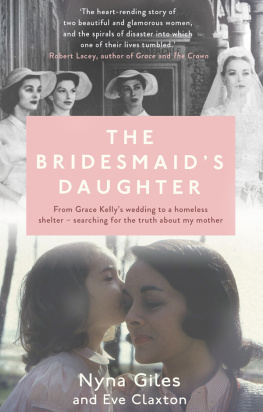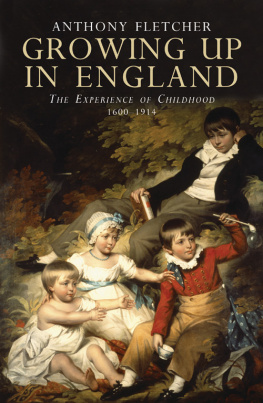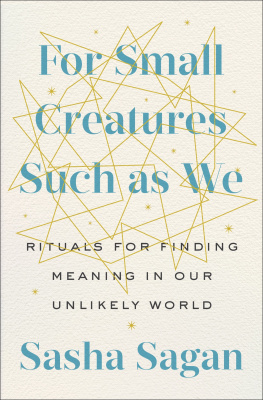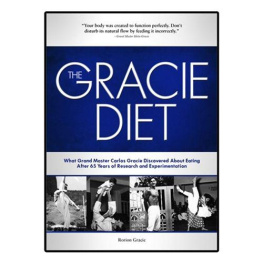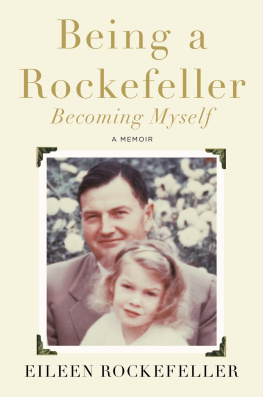FINDING
GRACIE

A Memoir
GRACE PAPAGNO

FINDING GRACIE
A MEMOIR
Copyright 2016 Grace Papagno.
All rights reserved. No part of this book may be used or reproduced by any means, graphic, electronic, or mechanical, including photocopying, recording, taping or by any information storage retrieval system without the written permission of the author except in the case of brief quotations embodied in critical articles and reviews.
iUniverse
1663 Liberty Drive
Bloomington, IN 47403
www.iuniverse.com
1-800-Authors (1-800-288-4677)
Because of the dynamic nature of the Internet, any web addresses or links contained in this book may have changed since publication and may no longer be valid. The views expressed in this work are solely those of the author and do not necessarily reflect the views of the publisher, and the publisher hereby disclaims any responsibility for them.
Any people depicted in stock imagery provided by Thinkstock are models, and such images are being used for illustrative purposes only.
Certain stock imagery Thinkstock.
ISBN: 978-1-4917-9388-6 (sc)
ISBN: 978-1-4917-9391-6 (e)
Library of Congress Control Number: 2016906885
iUniverse rev. date: 05/02/2016
CONTENTS
DEDICATION
For Stephanie, who gave me the opportunity to grow up all over again, happily.
I was brought up in the small, sweet town of Lindenhurst by hard-working, middle class parents, in a house that was solid and structurally without flaws. There were none of the hideous problems that made their way to the movie screen: no excessive drinking, no spousal abuse, no talk of hatred for any other people. We were considered an average American family. They were the 1950s, the days of fountain pens and soda fountains, junk drawers and rag-bags, clothes-lines and hand-washed dishes.
But beyond the facade of the sweet times and bustling family, beyond the chatter of voices throughout the house and beyond my understanding, secrets lay untold, quietly coexisting in our day-to-day lives.
I can remember as a little girl hearing about how much I was loved. The evidence, I was told by Mom, was all around me: I was fed good food three times a day, there was a solid roof over my head, and I had clothes to wear. The good sisters at school reiterated those sentiments, admonishing me and all of my classmates to thank God each day for our good fortune. I had, though, a difficult time trying to reconcile the words I heard with the emotions I felt. Mom never kissed or hugged me or my sisters, but she did have a steadfast rule that any of her children coming in or going out of the house had to kiss the cheek she presented. She didn't listen to my stories from school, nor did she have any interest in what I thought about things. My role was to do well in class, to stay out of trouble, to do my chores, and to make my family look good.
Mom was always in a hurry. She cleaned our house quickly and deliberately. She bustled through the grocery store. If she stayed in the car and told me to go into the dry cleaners to pick something up for her, she would honk the horn for me to hurry, even though I was not dawdling. She made me fret, and I was embarrassed in front of the other customers and the shop owner. When all her children were enrolled in school, Mom chose to work as a secretary at the town clerk's office, a job she loved to escape to each day. At dinner, the family listened to the stories she told of couples who came to her for their marriage licenses, some endearing, others sharply critical of such unfavorable circumstances as premarital pregnancy or interracial union. Carole, the eldest of the four daughters, was entitled to have some say at the table. But by the time Mom had reluctantly given up the spotlight to Carole, it left no time for Bridget, Margaret, or me to speak of our day.
Daddy was pretty quiet in our house. He worked hard in the painting and decorating business that he and his brother, my Uncle Mike, owned when I was little. When his green truck pulled up to the house at 6:30 each evening, my sisters and I would run to greet him with shouts of, "Daddy! Daddy, you're home!" We were strictly taught by Mom not to hang on our father, whose back was "bad," and so he would lean down to kiss each of us before going into the garage to wash his brushes and skin with the benzene he kept there. Daddy never lifted nor carried any of his daughters for fear of aggravating his bad back.
Many times when Mom brought the four of us girls shopping with her, she would leave us in the car. I remember once she parked in front of EJ Korvettes "for just a little while." What seemed like hours passed and little Margaret, known to us as Margie, began to cry. The car was warm so Carole said we could roll down the windows a little. We waited and wondered if one of us should venture into the store to find Mom. Had she forgotten about us? Eventually she returned with her purchases and told us we were being silly, complaining about waiting for her. She made it clear that we would have been too much trouble to take through the store.
Mom did love to cook, and she made wonderful meals for us. It was through her cooking and baking that Mom demonstrated her love. It was no wonder then, that her children became hearty eaters, a quality considered healthy in the fifties. I suppose that it was because I was so active that I did not become overweight. Slowly, each of my sisters and I took in all the love that we could, substituting Mom's dinners for hugs and her cookies for kisses.
Mom bestowed upon each of her daughters an attribute she saw fitting. Carole was the smart one, I the pretty one, Bridget the athlete, and Margie, well, Mom's joke was that there was nothing left for Margie. Mom also paired us in bedrooms according to our ages. Carole and I shared a room, even though she had little interest in me because she was the eldest, a birthright that lent her an air of authority and superiority. Bridget and Margie shared a room, giving them the opportunity to develop friendship and remain so throughout their lives. I became a loner in my own home.
And so my stories begin, the memories of my life growing up. These are vignettes---short tales of both good and bad times in a bygone world. They are my stories. I have, with the help of a few excellent people, changed some very negative patterns that had begun long before I was born. I occasionally mourn the loss of that simpler world, but I would not return to it. The woman I have become no longer belongs there.
You'll find these vignettes are not always in chronological order, but are told in the order in which you need to hear them.
To my dear friends Linda Pratt and Susan Collins who never lost faith in me.
To Judy Campbell, author, who first suggested that I get serious with my story and find an editor.
To Jennifer Caven who not only edited my book but also lit a fire under me when summer and the beach distracted me.
To Jimmy Ciminelli who kept my old computer working until I completed the entire memoir.
To Len who listened and listened and listened.
I GREW UP IN FEAR. It was a way of life then, the means by which countless post-World War II parents kept their children in line and out of trouble. I suppose they learned it from their parents who learned it from their parents and on and on, the "spare the rod and spoil the child" philosophy passed down through the ages. But it seems to me that many of this particular 1940s generation of parents, having saved the world for democracy, felt that breeding fear into their children was their natural right. I can speak only from my own experience and through what I saw in many other children of my time.
Next page



